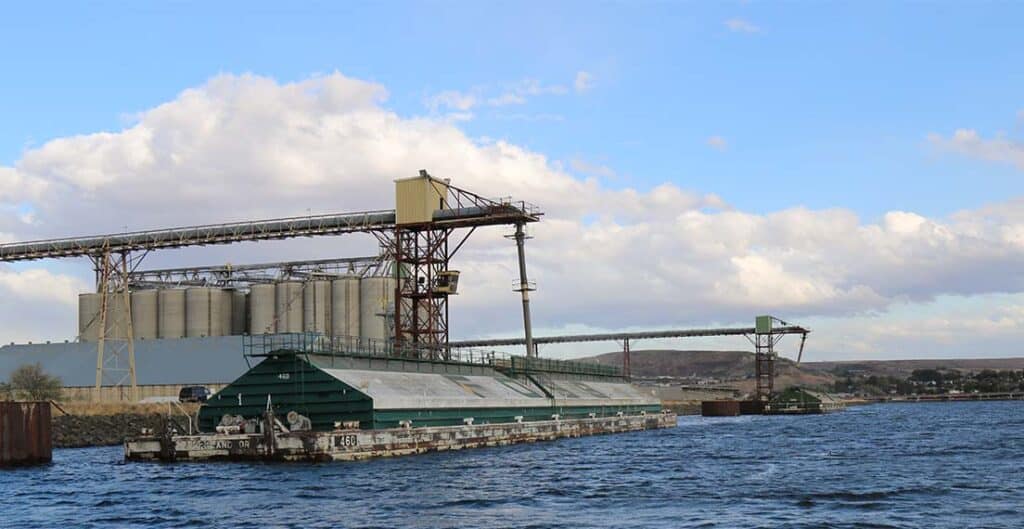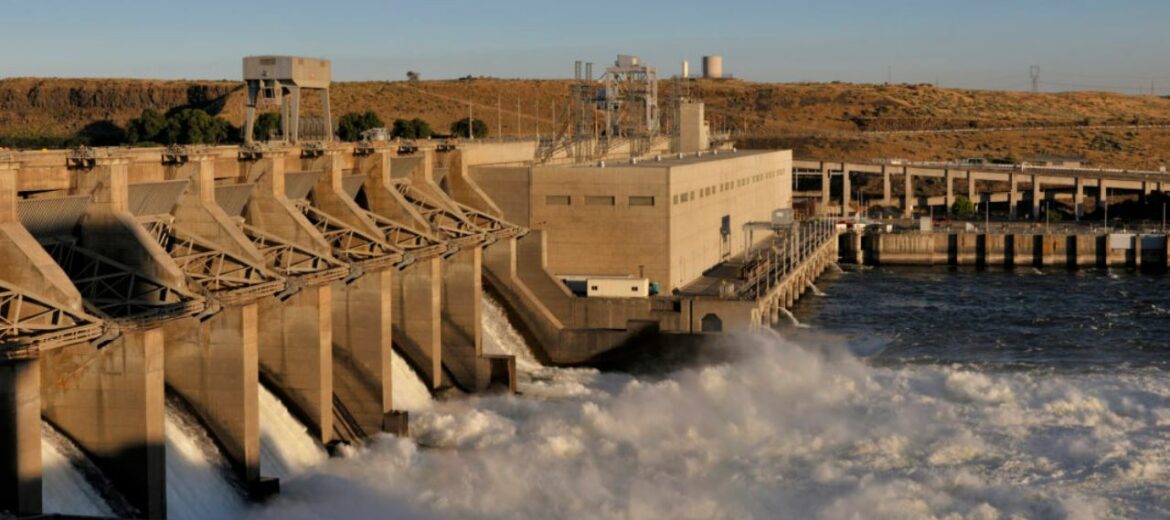Farmers in the Pacific Northwest would lose a critical barge shipping route if the federal government follows through on a pair of reports released by the White House this week.
The White House Council on Environmental Quality (CEQ) released two new reports on Columbia River Basin Salmon and Long-Term Energy Planning in the Pacific Northwest. The draft report Rebuilding Interior Columbia Basin Salmon and Steelhead, which was prepared by the National Oceanic and Atmospheric Administration with feedback from the U.S. Fish & Wildlife Service, outlines steps necessary to achieve healthy and harvestable salmon populations. Specifically, one of the recommendations includes breaching one or more of the Lower Snake River Dams.
While the Administration has not endorsed the Columbia Basin Partnership Task Force’s goals at this time, or the proposals identified in today’s draft science report, the National Association of Wheat Growers (NAWG) says these reports and the CEQ press release fail to mention the transportation, navigation, and energy benefits of the river system and the negative impacts dam breaching would have throughout the agricultural industry and rural communities.
“As a wheat farmer in the Pacific Northwest, growers from across the region benefit from barging as an efficient and affordable way to get our wheat to buyers worldwide,” said NAWG President and Washington state wheat grower Nicole Berg.
“The idea of breaching the dams on the Lower Snake River would have a devastating economic impact on the livelihood of wheat growers beyond the PNW. The Columbia Snake River System is critical infrastructure system that enables reliable wheat transportation to more than 20 countries throughout the Pacific Rim. NAWG has serious concerns about these reports and encourages the Administration to engage with the agricultural industry because breaching these dams will adversely impact wheat growers who are already facing economic pressures from inflation and lingering supply chain issues.”
The four dams — Lower Granite, Little Goose, Lower Monumental and Ice Harbor — are at the center of a decades-old fight over salmon and steelhead fish recovery and migration in the Columbia and Snake River basin.
The Snake River dams support about 60% of all wheat exports out of the PNW area, or between 80 million bushels (mb) to 100 mb annually.

One of the Biden administration reports released Tuesday cites the dam system as one of the biggest threats and limiting factors to improving fish populations.
“Business as usual will not restore the health and abundance of Pacific Northwest salmon. We need a durable, inclusive, and regionally-crafted long-term strategy for the management of the Columbia River Basin,” said Brenda Mallory, chair of CEQ, who developed the plan to overhaul the federal government’s role in the Columbia River system.
NAWG noted a single four-barge tow carrying wheat moves the equivalent of 538 semi-trucks. Barges are the lowest-cost shipping option as well.
A draft report for Inslee and Murray released in June had already noted price benefits of barge traffic. Removing the dams would likely lead to railroads hiking their rates as well, NAWG noted in its comments.
“While railroads and trucks compete with barge companies to move grain, farmers and grain handlers would be held captive without barges,” NAWG stated.
Republican members of Congress who represent much of the region involved issued a joint statement “slamming” the Biden administration reports calling for breaching the dams.
“Today’s release of two reports from the Biden Administration’s Council on Environmental Quality (CEQ) confirms what we have suspected for some time — they are cherry picking points to justify breaching the Lower Snake River Dams, which will permanently and negatively impact our way of life in the Pacific Northwest,” the GOP lawmakers stated.
The members of Congress also stated it appears the administration has been working on an agreement with plaintiffs in a lawsuit that would lead to removing the dams.
The GOP lawmakers on the letter included Reps. Dan Newhouse, Cathy McMorris Rodgers, Jaime Herrera Beutler of Washington, Cliff Bentz of Oregon, Russ Fulcher of Idaho and Matt Rosendale of Montana.
NAWG filed public comments this week in response to the Draft Lower Snake River Dams (LSRD) Benefit Replacement Report, which was published on June 9. Dam breaching would still require Congressional approval, and NAWG continues to educate lawmakers on the important role this critical infrastructure plays in helping move grain overseas in a time of growing fears of world hunger.
###
NAWG/DTN


